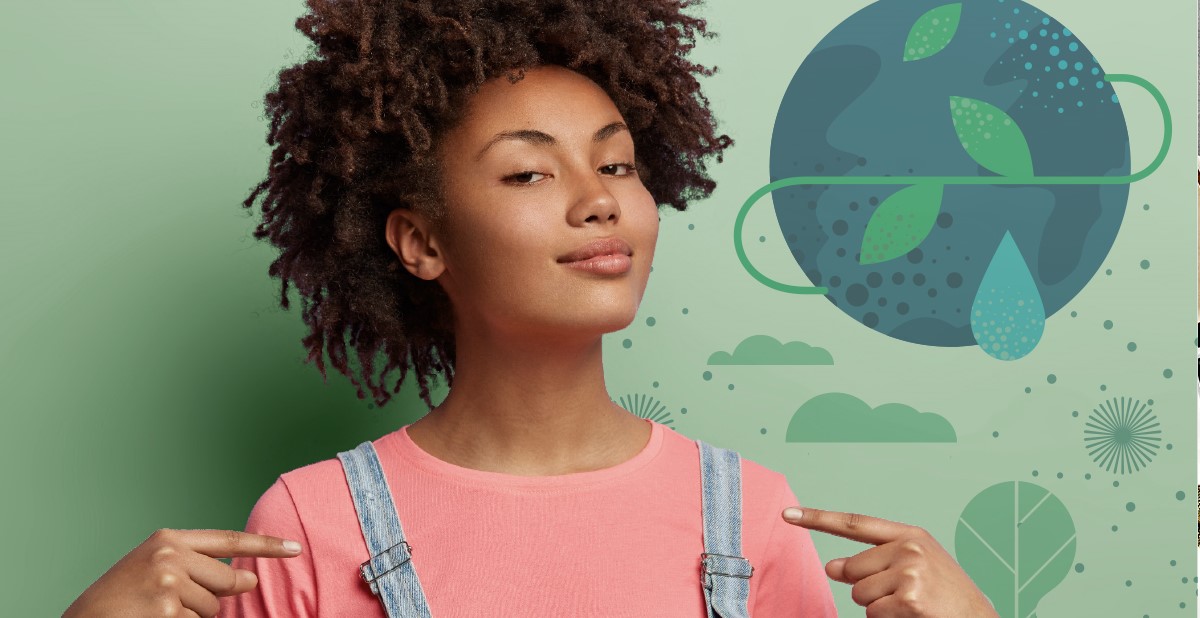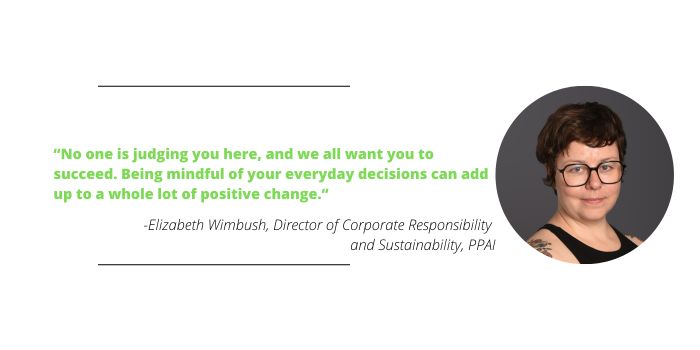Be The Change

You’ve heard it enough times that it ought to be sinking in, if it hasn’t already: We’re nearing a very real tipping point on climate change.
Either you get it and the anxiety has started to become real, or you likely don’t trust the science on climate. But even if you don’t, you probably still want clean air and clean water and a nice world for your grandchildren to grow up in. We’re not all that different.
In either case, I’ll bet you feel like there’s so much to do, and as a species – much less as an industry – we’re up against so much inertia that it’s kind of overwhelming. Where do we even start?
Easy peasy, lemon squeezy – we start with you.
Every cultural movement starts with a nearly imperceptible change and grows from individual contributions.
So, pitter patter, let’s get atter. We’re going to break this into three components for easy digestion:
1. Be curious
It’s worth spending a little time learning from trustworthy sources. Do you follow someone on LinkedIn who seems to be making eco moves that you admire? Reach out and ask them how they got started or if they have any resources they’d be willing to share. In my experience, folks involved in sustainability are pretty darn eager to share. (I mean, you should see my LinkedIn.)
Another great starting point is to calculate your personal ecological footprint. There’s a handy online tool for this: FootprintCalculator.org. Knowing where you’re coming from and learning what changes can be most impactful for you is empowering. For some people, that might be making tweaks in their day-to-day diet. For others, it might be transit choices. It can be as simple as learning more about the recycling capabilities of your city or region.
You might have also heard of the United Nations’ 17 Sustainable Development Goals. The SDGs (we love a good acronym, don’t we, promo?) are an impressive and far-reaching set of goals that can seem pretty daunting. But they’re vital to helping us overcome the challenges we face as a planet, and together they can provide a sustainable future for all life.
NBD, right?
The good news is, a fantastic group of people have worked to come up with approachable and bite-sized ways we can all contribute to them as individuals, as well as organizations.
At UN.org/sustainabledevelopment, they’ve even put together The Lazy Person’s Guide To Saving The World, which includes actions you can take from your couch.
2. Be Mindful
After you’ve calculated your ecological footprint and learned more about the SDGs, ask yourself where you can have the greatest impact. Focus your efforts there.
No one is judging you here, and we all want you to succeed. Being mindful of your everyday decisions can add up to a whole lot of positive change.

“Can my local recycling facility process this? Let me check real quick.” Or, “Is there a local option instead of this online purchase?” These are two simple examples that can have massive ripple effects to greatly influence a more sustainable world.
Next, ask yourself what kind of daily decisions you make in your professional life that could have the same impact. Do you drink your morning coffee out of paper cups? In your line of work, I bet you know someone who can find you a nice tumbler. Bam – that’s one. How about repairing and reusing office furniture instead of replacing it? Double bam. Can you uplift some marginalized voices to ensure equal access to opportunities in your workplace? Take those training wheels off, you’re really doing it!
3. Be a champion
There really is no winning this alone. It’s something we’re all in together. Sharing and celebrating your progress is just as important as making it. When you share the steps you’re taking, it empowers those around you to be curious and mindful as well and encourages open dialogue about how we all have ways to contribute.
Start a recognition program at your place of work for anyone who positively contributes to the company’s sustainability goals – even something like helping with getting a filtered water refill station installed instead of buying cases of bottled water.
If you feel good about a change you’ve made, tell others about it. Share it on Facebook or LinkedIn, and be real about the level of involvement. Even if you don’t feel like an expert, you might have a point of view that someone else hasn’t considered and finds great value in.
Here’s the thing: No one is perfect, and no one has all the answers. That’s the beauty of contributing in your own unique way and at whatever level means progress for you. Your grandkids are depending on you to do at least that.
In the eternal words of Kermit the Frog, it’s not easy being green. But it’s a whole lot easier when we lean in together.
Wimbush is the director of corporate responsibility and sustainability at PPAI.

